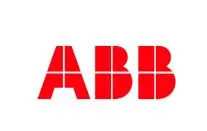

ABB and Imperial College London signed a 10-year contract to continue their carbon capture collaboration and technology partnership. A dedicated carbon capture pilot plant will continue to train the net-zero workforce, and engineers and scientists of  the future. Reportedly, the plant is the only one of its kind in an academic institution in the world.
the future. Reportedly, the plant is the only one of its kind in an academic institution in the world.
More than 4,500 students have had hands-on experience of ABB’s technology solutions at the plant since it opened in 2012 at Imperial College.
With the agreement, ABB aims to equip today’s students with the skills needed to run tomorrow’s industrial processes by demonstrating how the latest technology can help to optimize plant performance and safely manage emergency situations in real-life applications. The collaboration between ABB and Imperial College gives the university access to some of the most advanced control and instrumentation technology available from any manufacturer.
The plant, which is spread over four floors, uses ABB Ability System 800xA for distributed process control and over 250 instruments, measuring temperature, pressure, carbon dioxide and flow. System 800xA automatically controls and coordinates all aspects of the plant process, which is then visualized on displays in the ABB Control Room, where students can monitor and intervene if necessary.
ABB’s Ability Verification for measurement devices and new Ability SmartMaster verification and condition monitoring platform are also being used to equip students with the skills needed to optimize instrument performance through predictive maintenance.
To enable the commercial CCS market to scale, ABB is deploying technology solutions to lower the capital and operational investment costs and de-risk integration into existing and new operations. In March 2023 ABB joined forces with London-based Pace CCS to make the capture, transportation and storage of industrial carbon dioxide emissions more accessible. Key to this is using digital twin technology to provide a virtual replica of a real process to test scenarios and deliver proof of concept.

